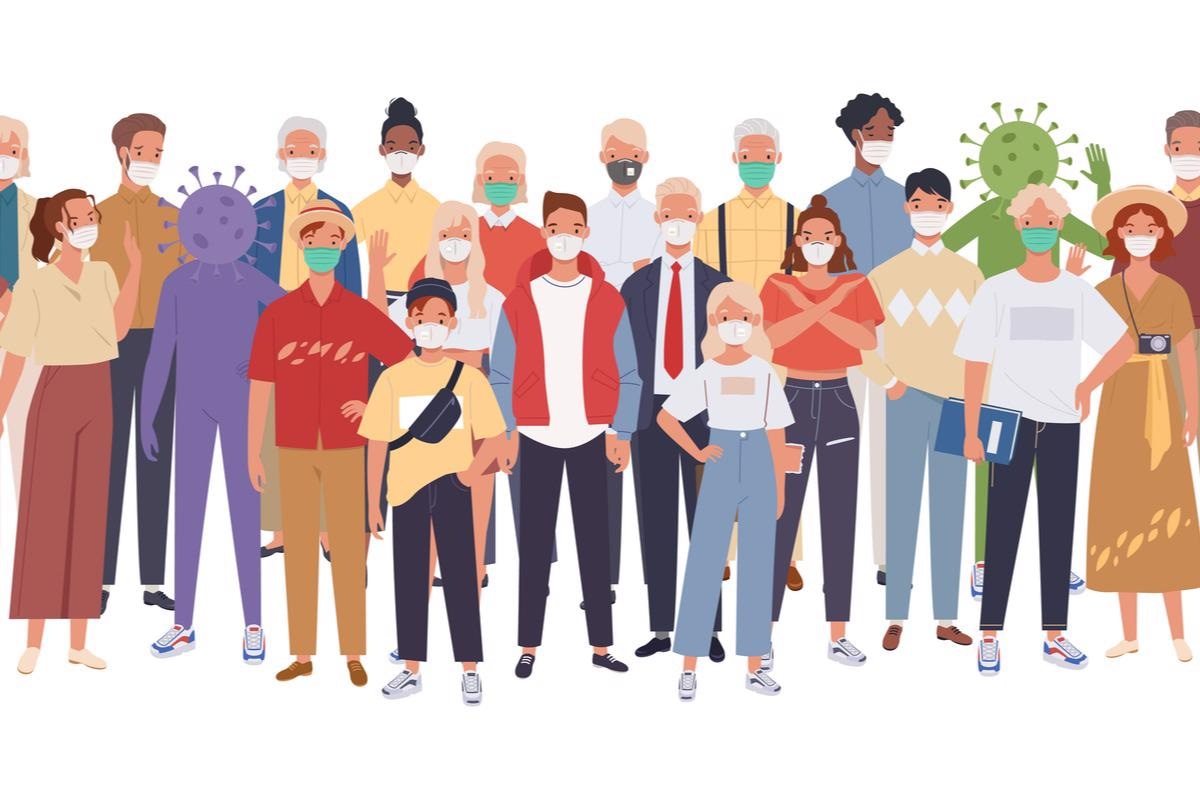In a recent study posted to the medRxiv* preprint server, researchers evaluated the relationship between risk perception and personal protective behaviors during the coronavirus 2019 (COVID-19) pandemic.
 Study: Risk Perceptions and Private Protective Behaviors: Evidence from COVID-19 Pandemic*. Image Credit: Paranyu/Shutterstock
Study: Risk Perceptions and Private Protective Behaviors: Evidence from COVID-19 Pandemic*. Image Credit: Paranyu/Shutterstock

 *Important notice: medRxiv publishes preliminary scientific reports that are not peer-reviewed and, therefore, should not be regarded as conclusive, guide clinical practice/health-related behavior, or treated as established information.
*Important notice: medRxiv publishes preliminary scientific reports that are not peer-reviewed and, therefore, should not be regarded as conclusive, guide clinical practice/health-related behavior, or treated as established information.
Background
Subjective risk perceptions can influence decision-making in almost every economic domain. While a vast literature emphasizes the significance of subjective beliefs for individual actions, only a few studies offered empirical evidence of an association between risk perceptions and behaviors. Any policy development, for instance, public health campaigns or government mandates, requires knowledge on how subjective risk perceptions dictate behavior in the presence of risk. It is also critical to understand how a policy influences perceived risk and how risk beliefs, in turn, influence behaviors to predict responses to the introduced policies.
The study
The current study analyzed the relationship between individual risk perceptions and economic behaviors. This analysis is based on the United States (US) national survey in May 2020. The authors collected information on individual perceptions about the risks of COVID-19, including but not limited to the likelihood and possible health implications of infection. Moreover, they also investigated the changes people had adopted in their activities in response to the growing health crisis (pandemic) and how likely they were to adopt the changes in a hypothetical scenario in the absence of measures and restrictions introduced by the government.
A survey research firm, Westat, administered the survey between May 7th to May 26th, 2020. Researchers from the firm randomly selected over 13,500 residences and invited them (with letters) to participate in an online survey by offering them a cash incentive upon completing the survey. The survey covered several domains related to the COVID-19 pandemic, including the risk of contracting the infection and behavioral responses to the pandemic.
Participants were asked to indicate whether local officials or the governor implemented any shelter in place (SIP) policy and any changes in the time spent on activities (grocery shopping, dining, etc.). Those who reported active SIP restrictions during the survey period were asked how much time they would have spent if there were no such restrictions. Similarly, participants without SIP restrictions were asked to indicate the changes they would have adopted if restrictions were in place.
The participants were directly asked to evaluate the risk of contracting COVID-19 when engaged in economic activities like visiting cinemas, dining at restaurants, using shared transportations, and shopping at groceries, among others. Moreover, subjective beliefs about the risk of COVID-19 outcomes were surveyed by asking them to assess the likelihood of having a symptom, need for medical care, and hospitalization, including death. The average level of subjective risk beliefs was compared to the level of COVID-19 prevalence. The extent to which their perceived risk varied was examined.
Results
The study enrolled 1,365 individuals, of which only 1,222 completed the survey. More than 92% of participants reported an active SIP order. The respondents’ mean age was 47 years, with 51% female participants, 16% Hispanics, and 9% non-Hispanic Black people. Around 55% of the respondents had at least one underlying condition.
The authors noted that people, on average, overestimated the risk of contracting the virus and dying from COVID-19. An average participant perceived a 40% risk of catching COVID-19 when shopping for groceries and a 29% chance of COVID-19-associated death if they develop an infection. Overall, the objective risk of getting infected was lower than respondents’ beliefs. Men thought they were at a lower risk of COVID-19 than women when engaged in any activity, and Hispanics perceived increased risk of contracting COVID-19 than White respondents. People with underlying medical conditions perceived higher risk of infection. While the overall risk assessment was overrated in individuals, their subjective beliefs often pointed out relative risks correctly.
In the case of a SIP order, most respondents (40%) cut their grocery shopping, and 79% avoided dining at restaurants. It was noted that implementing SIP restrictions did essentially reduce their activities. People believed they would have followed substantial personal preventive measures without SIP policies (hypothetical case). Furthermore, participants felt that personal subjective beliefs about risk would have guided their behavioral choices in the absence of SIP policies.
Conclusions
The authors observed that subjective risk assessments are predictive of economic activity and that many Americans cut their outdoor activities in response to the COVID-19 pandemic. The individual risk perceptions influenced these activity reduction decisions.
A notable implication of these findings is that SIP policies introduced relatively more constraints among those who believed they were at a lower risk of contracting COVID-19 infection. Most respondents thought they would have decreased their activities without formal SIP interventions. Overall, these results suggested that subjective risk perceptions should be considered before designing policies aimed at changing individual behavior.

 *Important notice: medRxiv publishes preliminary scientific reports that are not peer-reviewed and, therefore, should not be regarded as conclusive, guide clinical practice/health-related behavior, or treated as established information.
*Important notice: medRxiv publishes preliminary scientific reports that are not peer-reviewed and, therefore, should not be regarded as conclusive, guide clinical practice/health-related behavior, or treated as established information.